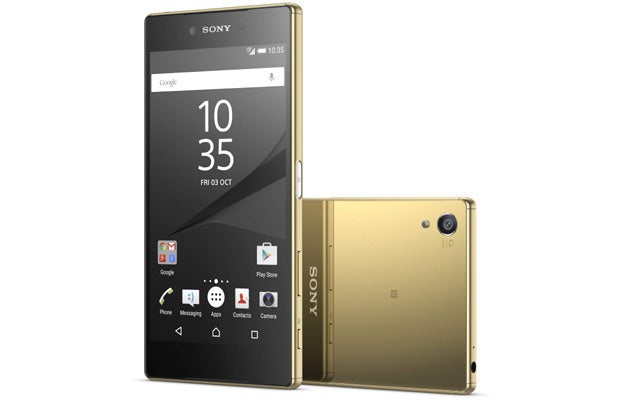A curious thing happens almost every year in the land of Android announcements: We hear about some of the most interesting Android phones around -- devices that not only are beautifully designed and a pleasure to use but also fill an important gap in the current Android ecosystem -- and then...nothing.
Crickets.
Silence.
For those of us in America, it's as if the phones were no more than a mirage.
I'm talking about Sony's Android phones -- the always-impressive Xperia Z flagship series. If you didn't pick up on that, don't worry: You aren't alone. Most people in the U.S. have no idea those devices even exist.
As someone who watches the Android ecosystem closely, though, Sony's irrelevance in the U.S. gets more baffling with every passing year. The company really is doing something special -- something that stands out from the sea of sameness that's much of the smartphone market -- and yet, you'd be hard-pressed to find most of its mobile products anywhere in this country.
The cycle is starting up yet again: This week, Sony announced a trio of new Xperia devices, including the Xperia Z5 Premium -- which packs a somewhat silly but still attention-grabbing 4K display -- and the Z5 Compact, which I'd peg as the real star of the show.

Sony's Xperia Z5 Compact
The reason? The Z5 Compact is a high-end phone that isn't enormous -- an elusive combination that's bordering on extinction these days. The device has a 4.6-in. display and is every bit as impressive as the larger Xperia Z5 flagship upon which it's based. "Somewhat big" to "enormous" may be the trendy flavor in smartphones right now, but there are still plenty of people who prefer a more manageable device -- and Sony's the only manufacturer offering that in a flagship-caliber form ("a compact device that doesn't compromise," as I put it after living with the Z3 Compact last fall).

Perspective: the Z5 Compact next to the regular (and more standard-sized, with a 5.2-in. display) Xperia Z5
We could talk more about what Sony gets right in its Android devices -- things like distinctive design, excellent cameras, and outstanding stamina -- but all of that almost doesn't even matter. Because the sad truth is you probably won't be able to buy these phones in the U.S. anytime soon, if ever.
The official word right now is simply that "nothing's been announced" in terms of potential U.S. availability -- not a definite "fuhgeddaboudit," by any means, but a statement eerily similar to what we've heard at past Sony Android launches.
The last Sony handset to be released in America was the Xperia Z3v, a bastardized and less good Verizon-exclusive version of the company's 2014 flagship. Verizon announced plans to release a similarly customized Xperia Z4v back in June (based on the Z4 flagship -- also known as the Z3+ -- launched earlier this year), but it's yet to surface. And if/when it does, it'll be a generation behind from the moment it debuts. It's about as irrelevant of a launch as one could dream up.
That gets at the root of Sony's struggle to break through in these here States of America. As I've noted before, the company has three very consistent problems that keep it from achieving relevancy:
- Focus. Plain and simple, Sony releases too many damn phones, and its product lineup is consequently a convoluted and thinly spread mess. The fact that this new Z5 flagship comes just a few months after the launch of the previous Z4/Z3+/Z-WTF flagship (which, remember, still has yet to come to the U.S.) is only part of the story. The company also has a gazillion other confusingly named variations on the same basic concept. Whether we're talking carriers or consumers, it's virtually impossible to keep up and keep it all straight.
- Ubiquity. Or, to be more accurate, lack thereof. Selling a smartphone on a single carrier is no longer a viable way to be relevant in this day and age. And even if you want to buy Sony's phones unlocked, they generally range from difficult to impossible to find in the U.S. No wonder no one's getting them.
- Memorable marketing. Try a little experiment today: Ask your friends and co-workers what they think about Sony's smartphones. That'll tell you everything you need to know.
Here's the crazy part of all of this: Now more than ever, Sony is in a prime position to strike. We're in the midst of a smartphone revolution in the U.S., with carrier contracts going away and manufacturers like Motorola starting to focus exclusively on unlocked and non-carrier-connected sales. If there were ever a time for Sony to stake its claim in the U.S. mobile market, this is it.
And Sony, like the Lenovo-owned Moto, certainly has the resources to pull it off -- to establish itself as the premium player in the unlocked smartphone marketplace. Selling high-priced phones off-contract isn't going to be easy at this point, but with forms and features no one else is offering, Sony might have a compelling enough proposition to convince certain subsets of consumers to spend the cash. It just has to make sure people know about the devices, understand how they're different, and understand how to purchase them (which means they also need a way to purchase them) first.
Sony's smartphones have what it takes to be relevant in the Android arena -- that much I'm certain of. The question is whether Sony has what it takes to make them relevant -- and that's something the company has yet to show us.







